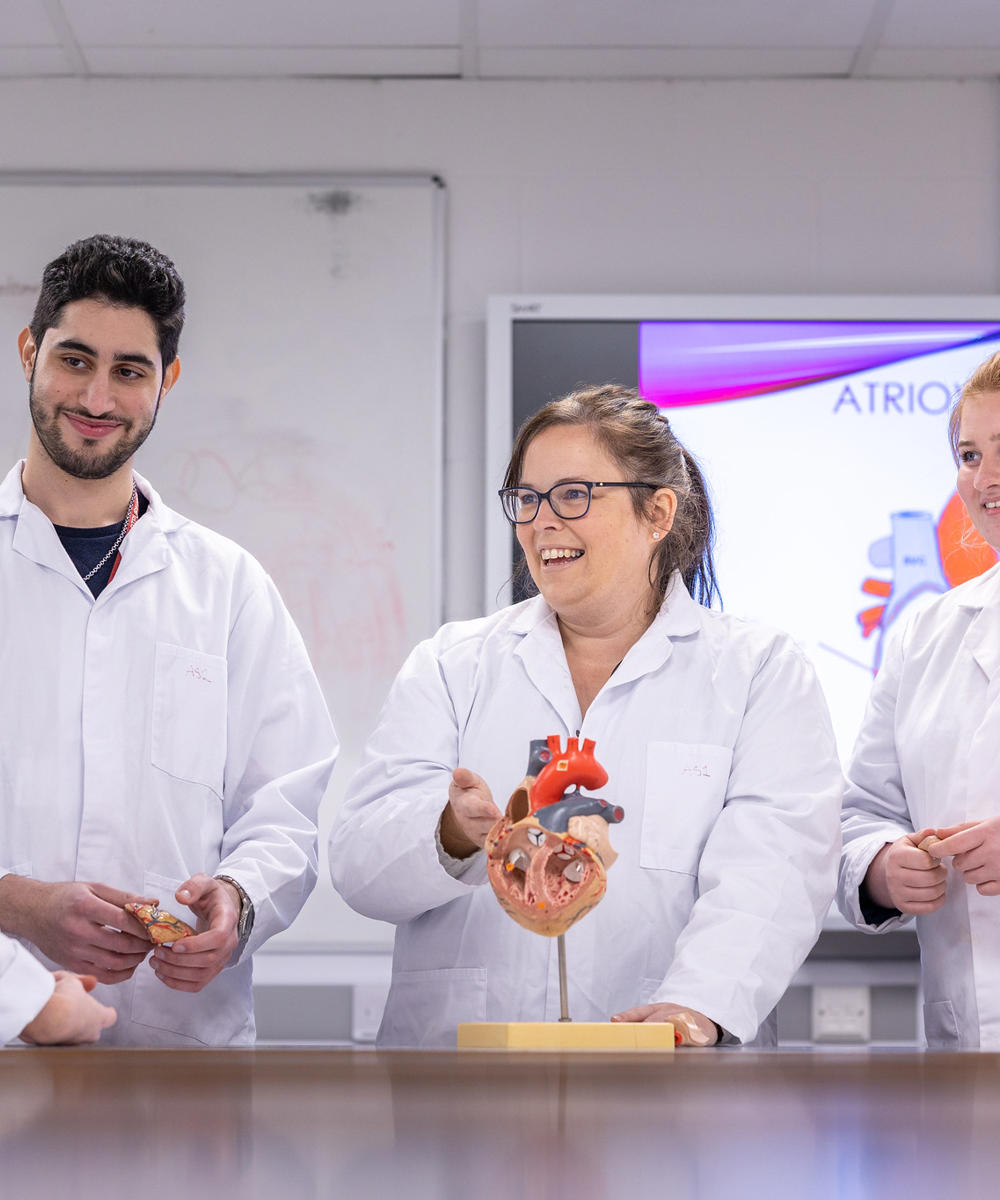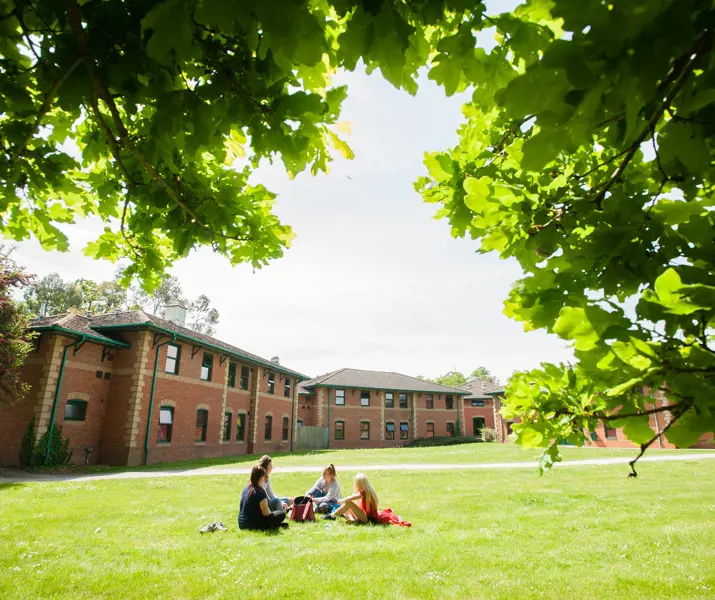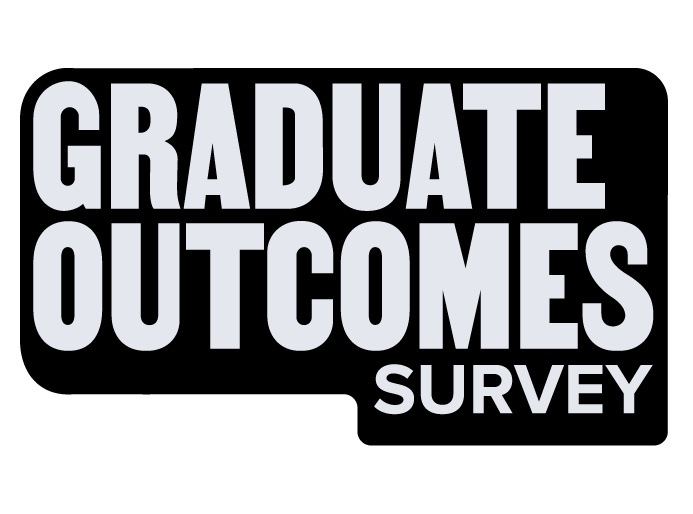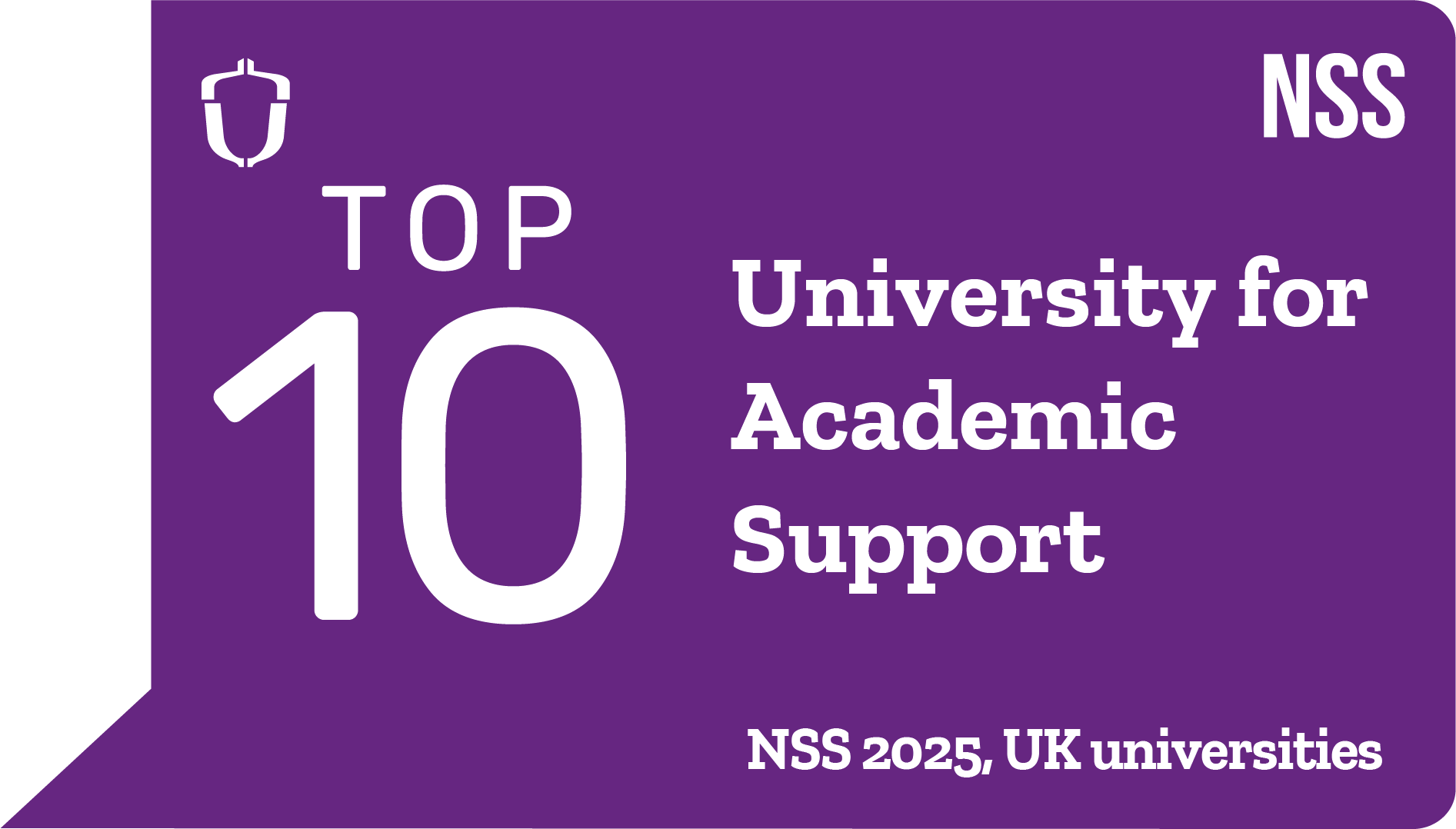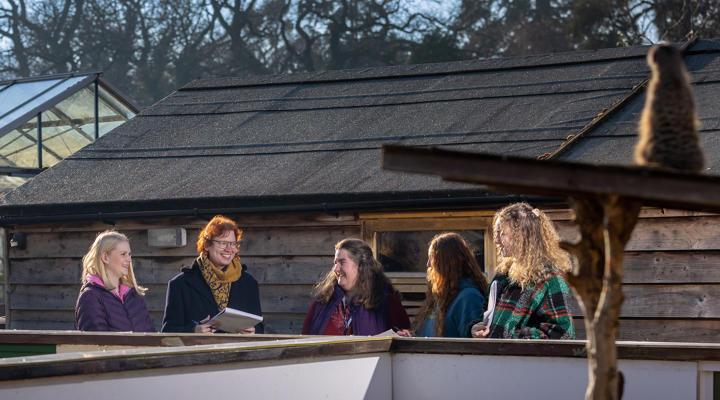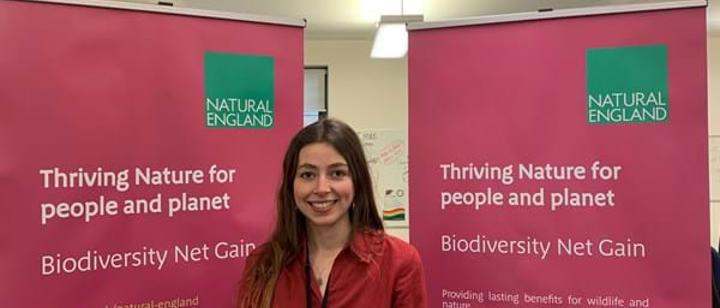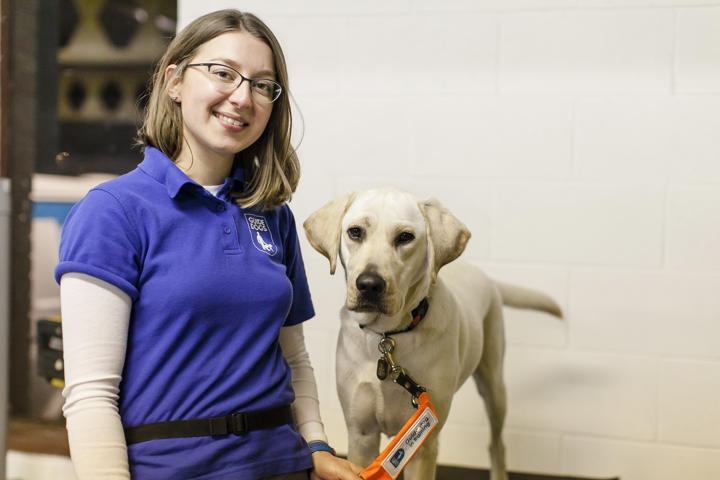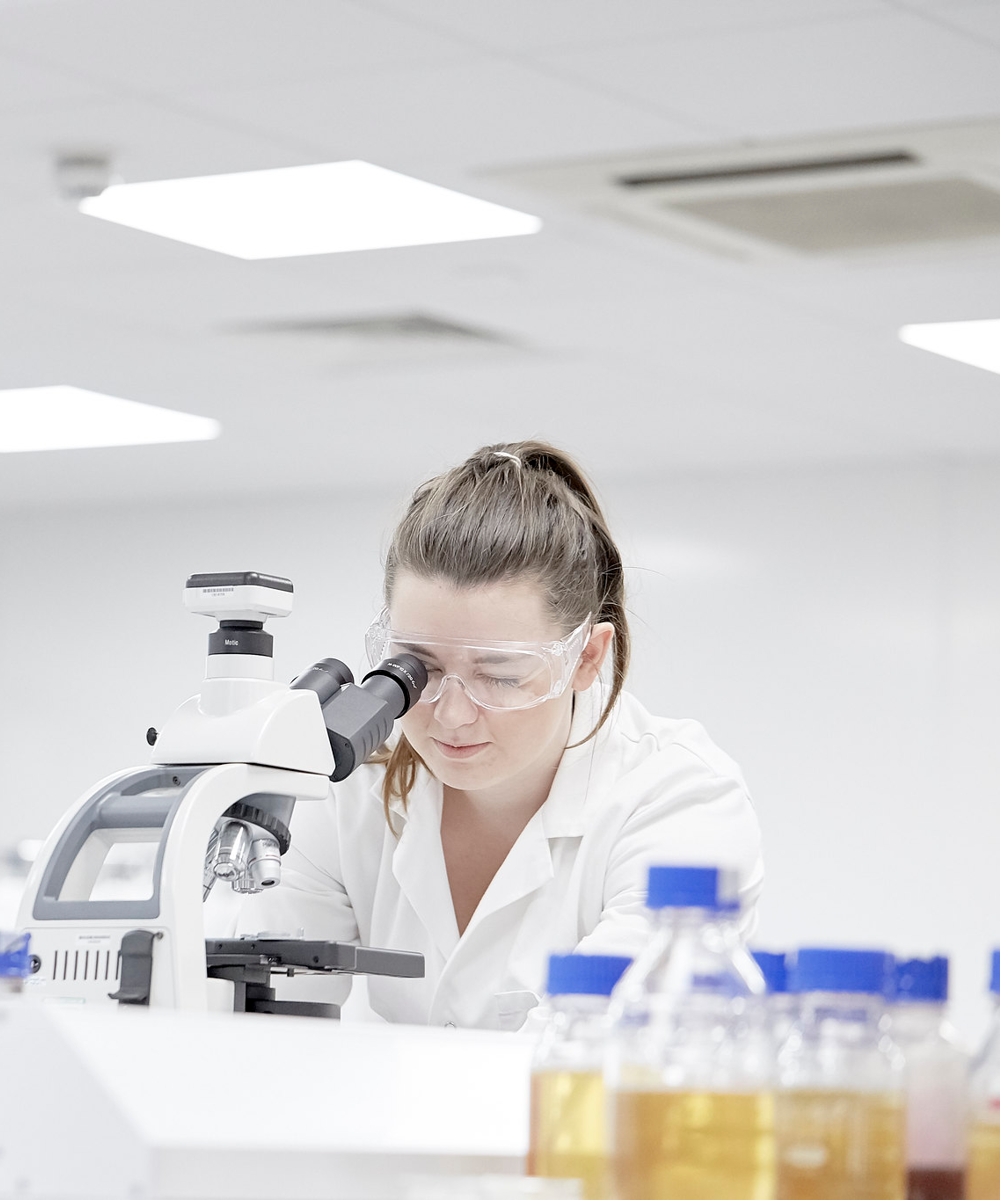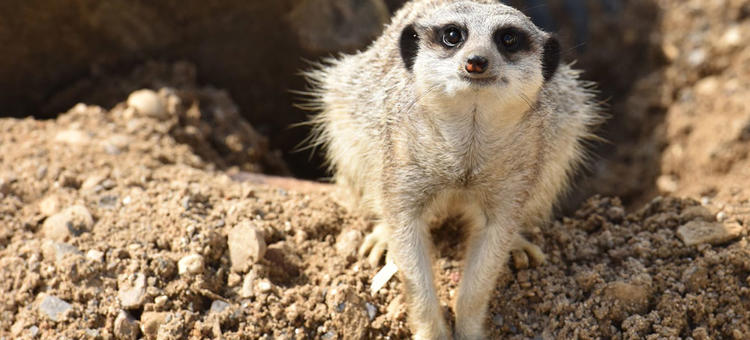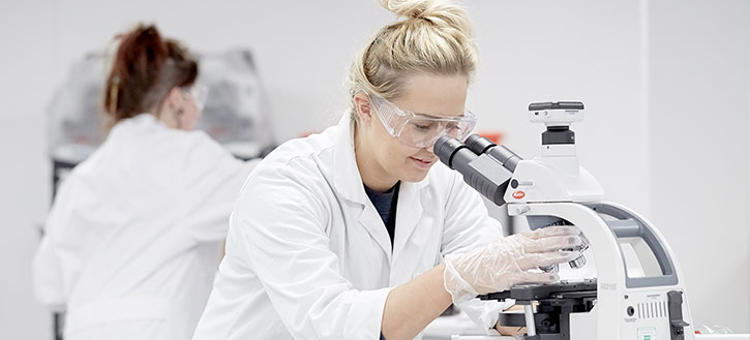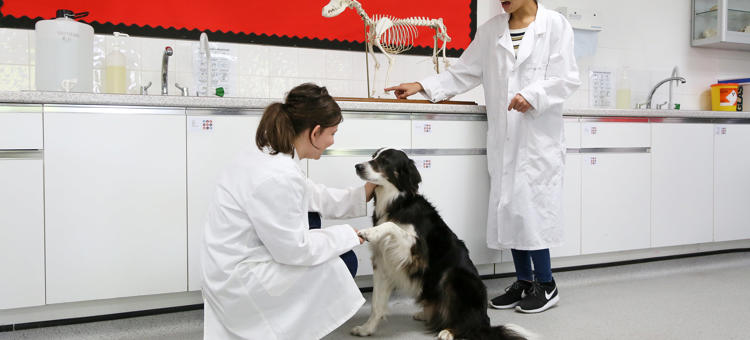Engage with subject experts, including practising veterinary professionals, within our team at Hartpury and visiting external speakers.
Work with a range of species in our on-site animal collection, commercial farm and large equine centre to experience handling and working with animals. These experiences will be part of your course and there is also opportunity for you to select additional external experience as part of our modules.
Gain practical experiences and apply theory to practice as you get hands on in our dissection, science and microbiology laboratories, learning more about health assessment and management in a range of species. Investigate notifiable and zoonotic diseases, and understand more about how laboratory diagnostic tests work alongside other diagnostic methods.
- UCAS tariff points | 128 – 144 UCAS tariff points, to include Biology and Chemistry.
- A Levels | ABB or equivalent from at least two full A Levels, to include Biology and Chemistry. A grade A must be achieved in either Biology or Chemistry.
- Vocational Awards | DDD in an Extended Diploma in a relevant subject.
- Access | 128 UCAS tariff points in an Access to Higher Education Diploma. This must include 15 level 3 credits at Distinction in Biology and 15 level 3 credits at Distinction in Chemistry.
- International Baccalaureate | 128 UCAS tariff points in an IB Diploma, from at least two Highers at H6 or above. This must include Biology and Chemistry.
- Scottish Highers | 128 UCAS tariff points from at least two Advanced Highers, to include Biology and Chemistry at B or above.
- Irish Leaving Certificate | 128 UCAS tariff points from at least two Highers, to include Biology and Chemistry at H1.
Additional Information
In addition to the above, we require a minimum of five GCSEs at grade 9-7 (A*-A), to include English, Maths at grade 6 or above and two sciences at grade 7 or above. We will consider equivalencies including but not limited to Irish Ordinary level, National 5s, IB standard level.
We will consider combinations of level three qualifications.
We welcome applications from individuals with equivalent, non-UK qualifications and mature students (over 21). We may interview as part of the application process.
The minimum academic entry requirement for this programme is 120 UCAS tariff points, providing this is combined with relevant experience.
Email us
Your support network
You'll benefit from a strong support network from day one to be the best you can be. This will range from your personal tutor and specialist academic support team (our Achievement and Success Centre) to dedicated wellbeing and employability (Innovation, Careers and Enterprise) centres.
Academic support
You’ll have your own personal tutor while you’re here who will support you to succeed in your studies. You’ll also have access to our academic and wellbeing support teams who run regular workshops and one-to-one sessions on campus and online.
Alongside this, we have a comprehensive bank of online study skills resources to help you make the most of your qualification.
Your learning experiences
You’ll experience a range of teaching methods to strengthen your digestion of topics and application of skills, including lectures, workshops, practical sessions and experience in our onsite commercial enterprises, with our onsite animals and industry professionals. In year two, you will have rotation of practical experiences within these facilities. Some rotations will be in timetabled scheduled hours, and some will require you to attend in addition to typical timetable to experience practical situations in on-site commercial and industry standard settings.
Your career
Each year of your course will be made up of two semesters, within which you’ll study compulsory and optional modules on different industry-focused topics, enabling you to develop your own unique portfolio of knowledge, skills and experience, ready for your career. The course is taught in English.

